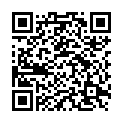|
|
|
| Module code: E2511 |
|
|
4V (4 hours per week) |
|
5 |
| Semester: 5 |
| Mandatory course: yes |
Language of instruction:
German |
Assessment:
Oral examination
[updated 08.01.2020]
|
E2511 (P211-0094) Electrical Engineering and Information Technology, Bachelor, ASPO 01.10.2018
, semester 5, mandatory course, technical
|
60 class hours (= 45 clock hours) over a 15-week period.
The total student study time is 150 hours (equivalent to 5 ECTS credits).
There are therefore 105 hours available for class preparation and follow-up work and exam preparation.
|
Recommended prerequisites (modules):
None.
|
Recommended as prerequisite for:
|
Module coordinator:
Prof. Dr. Horst Wieker |
Lecturer: Prof. Dr. Horst Wieker
[updated 10.09.2018]
|
Learning outcomes:
This lecture is based on the technical skills and knowledge acquired in the lecture Communications Technology 1. After successfully completing this course, students will be able to fundamentally describe and understand the structure and functioning of different transmission and access networks. Furthermore, they will be able to classify and analyze functional extensions and optimizations of existing and new transmission and access networks with regard to the layers used in the OSI reference model. Students will have in-depth knowledge about the assignment of transmission networks in connection with the OSI reference model and the architecture of networks, their coupling and synchronization. (Technical competence: 3 ECTS) Finally, they will be able to apply their acquired knowledge to planning telecommunication networks in group work. (Social and personal competence 2 ECTS)
[updated 08.01.2020]
|
Module content:
1. Transmission networks (PDH, SDH, OTN, Ethernet) 2. Coupling transmission networks (hub, switch, router, gateways) 3. Ethernet-based TCP/IP networks (IPv4/v6 addressing, network address formation, routing methods, Internet/Intranet via VLANs, VoIP) 4. Clocking and synchronization of transmission networks (clocking by means of frequency standards, clock preparation, master/slave method) 5. Signaling in transmission networks 6. Mobile networks (GSM-LTE) 7. Access networks (xDSL, broadband cable, HFC, FTTx, PON, SAT, radio relay systems)
[updated 08.01.2020]
|
Recommended or required reading:
Badach, Anatol; Hoffman, Erwin: Technik der IP-Netze, Hanser, München, (latest edition) Keller, Andres: Breitbandkabel und Zugangsnetze, Springer, 2011, 2. Aufl., ISBN 978-3642176302 Krüger, Gerhard: Lehr- und Übungsbuch Telematik, Hanser, 2004, 3. Aufl. Obermann, Kristof; Horneffer, Martin: Datennetztechnologien für Next Generation Networks, Springer Vieweg, 2013, 2. Aufl., ISBN 978-3-8348-1384-8 Sauter, Martin: Grundkurs Mobile Kommunikationssysteme, Springer Vieweg, (latest edition) Siegmund, Gerd: Technik der Netze, Hüthig Stevens, W. Richard: TCP/IP, Hüthig, Heidelberg, 2008
[updated 08.01.2020]
|


